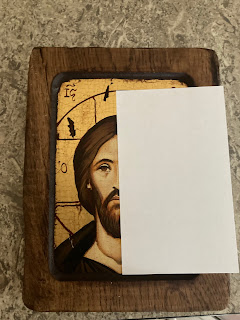26 June 20XX+1
My Dear Lucilius:
This entry is written after the events described, at the end of what seems like the longest day of my life. I am still trying to process them.
Our off-shift sleep was disturbed by the Leftenant: it felt as if I had just closed my eyes. We were to gather our weapons and move down the channel as scouts from McAdams had gone out and returned; it was assumed a larger party would follow shortly.
Bleary eyed (at least we of Team 3), we crouched down to the base of the stream, moving forward to meet the rest of our companions pressed into the dirt and remnants of grass that had come from above. We crouched even lower at the sound of voices and movement over the top and to the side of us – when one has spent a year or more knowing where every noise originates from, to suddenly hear sounds of people and even an engine that is completely unknown to you is jarring. One instinctively tenses in response over sounds once considered ordinary.
They were far enough away and too muffled to make out distinct conversations, then were blotted out entirely by the sound of engine revving very slowly as it moved down the road.
The sounds died off into the distance and the Leftenant gave a hand sign. We continued down the streambed, farther than any guard watch had taken us to the edge of the stream disappearing under the road, carefully avoiding stepping into the mud that would reveal us to observers downstream. Everyone moved up as close as they dared to the lip where the flat earth began its descent to the water.
As long as I remain alive Lucilius, I will remember those moments of lying in the warm June sun, trapped by circumstances, strangely feeling both languid from the heat and tense beyond measure for what was coming, earth crumbling into my face.
And then, to the East down the road, the world erupted in the sound of gunfire.
I flinched down – we all did, I suspect, although there was nothing to flinch at directly. The chattering and crack of gunfire increased.
The Leftenant and Ox rolled up over the edge and sighted their guns. We all did as well. Suddenly my world had collapsed to looking down an iron sight.
From the direction of the gunfire, forms began appearing to get closer, some looking behind them and shooting, some falling, some just running.
Closer and closer they came. Individual details came into view: hair color, types of clothing, even the logos on T-shirts. One came into my view, bearing a some kind of concert T-shirt from a civilization past.
And then with a shout, the Leftenant opened fire. We all joined in.
I have been shooting in the past, Lucilius – more for target practice than for anything else and perhaps once or twice over the years for hunting. I know this gun well; it was my grandfather’s before becoming my own, a iron-sighted repeating relic of an earlier age, when hunting was in vogue and every man on a magazine cover a sportsman. The firearm itself works well enough for my purposes, which were only really to maintain my skill. Never in my life had I anticipated actually using it against another human being.
The world becomes a slow blur at accelerated speed. I pull the trigger, only slightly anticipating the slam into my shoulder from the recoil. In days past I would have stopped, leisurely checked out my target, and then refocused. Not now. Pull the lever action to seat a new bullet as the old casing falls away into the soil and my shoulder reminds me I am no longer young. Sight and fire again as the line booms with the sound of weapons discharging.
The forms start to jerk and fall. Suddenly soil kicks up ahead at the ditch edge with return fire. The instinct is to duck and roll down, pressing into the soil; instead one rolls back over, pulls back the lever and the cartridge falls to the ground, pulled by a gravity made seemingly quicker by the remnants of discharged gunpowder. Roll back over and fire again. And again. And again, then fumbling for shells to reload into the rifle as all around the cacophony of war sounds: booms and cracks of firearms, a blurred shouting of commands down the line that are almost unintelligible, and farther out the cries as the projectiles lodge home. Bullets pressed home, pull the lever action and roll over again.
And then, suddenly, everything stops.
The figures that were running forward are no longer there; still forms on the pavement and on either side of the shoulder are all that remain. Guns remain at the ready and we stand at at hair’s breath of opening fire again until in the distance, whistles start blowing. The Leftenant shouts for us to lower our weapons. We do so, almost reluctantly for a group that came here only a few days ago with only the vaguest idea of what it was to fight, hearts pounding and ears ringing and fingers and emotions set on edge.
As figures bearing armbands come into view continuing to blow whistles, we look at each other with a fragile sense of belief that it may be over. Looking down line, I do the count of 8. I count myself at 9 and turn to my right.
There was at least one lucky shot.
Blazer Man lay staring upward on his back, the wound that had taken his life leaking out over his clothing and down to the stream, where it would flow on eventually to the sea instead returning with him to the library of history past and the grave of his wife.
Your Obedient Servant, Seneca


















































